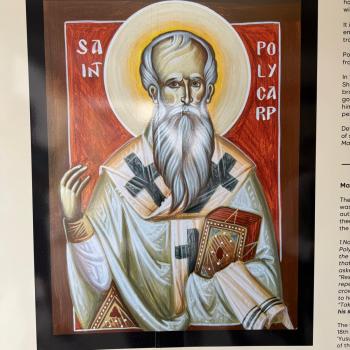BEN: Yes, God’s people are to love, even love their enemies, because that is the character of God himself, but since God is also a righteous and holy God that wants justice amongst his people and in the world, it seems to me that while love is not a social program in the Bible, nonetheless, it is a viewed, perhaps as a byproduct, as a means to change society for the better. Yes we love the marginalized because God loves them, but that love has no concreteness to it if we are not trying to improve their living conditions etc. Jesus after all told us we need to be feeding, clothing, and visiting the least of these in prison. That sounds like a social program to me, even if it’s motivated by love. Comments?
PATRICK: I agree. Love is tangible action for the good of another. I conclude chapter 2 on Deuteronomy 10 with an appeal for Christian integral mission based on loving others in need as we have been loved by God. In regard to the global refugee crisis, for example, I say “One thing is sure: our hard-edged capitalist culture has no room for those who are not contributing to its ruthless system of acquisition and consumption. The church’s vocation is to provide, with generosity and love, that room for those forcibly displaced” (p.41).
As you know, the history of evangelicalism during the 20th century was marked by major divisions over the relationship between the gospel and social action. It was John Stott and Billy Graham who had a key role in Lausanne 1974 in helping the evangelical movement recover from an unbiblical split of the two that had characterized 20th century fundamentalism. I’m certainly not wanting to go down that fundamentalist path of retreat from social action. My critique is of a hermeneutical jump where the New Testament’s overwhelming emphasis on love within God’s new covenant community is uncritically broadened to apply to the world in general. For example, where Jesus’ and James’ teaching about caring for the poor within the kingdom community subtly shifts to become a basis for political action to end all poverty.
BEN: Let’s talk about the Shema for a moment (pp. 56ff.). As you rightly stress, ahav is the word here for love, which is a more generic term used for the love of all sorts of things and people in the OT. It even is used for the love of mundane things— like Esau’s soup! And as you rightly stress, loving God involves cognitive as well as affective and behavioral love. My issue with the Shema is— how in the world was hard-hearted Israel supposed to love in the total way described in the text when they did not yet have the ongoing internal presence of the Holy Spirit in them and in their community? This sounds like the Don Quixote song ‘To dream the impossible dream’ or like Thomas More’s Utopia. Even Christians who are full of the Holy Spirit have trouble loving God with all they are and have. So how should we view incredibly demanding exhortations like this without trivializing them as just dramatic hyperbole?
PATRICK: I guess that question could apply to all of the OT in comparison to the NT. As you know much better than me, 2 Corinthians 3 is probably the most explicit text in the NT in terms of comparing the ministry of the Spirit Old to New. It is with Christ and the gift of the Spirit that God’s people now have the ‘veil removed’ and are able to ‘see the glory of the Lord as though reflected in a mirror’ (2 Cor 3:18). In regard to love, I see it like this: human love for God in Deuteronomy is obviously real. God doesn’t give intentionally impossible commands. But in the NT, humans can enter into a deeper transformative relationship of love with God through the Spirit of Jesus. The Old foreshadows fulfillment in the New. (And we should say, present new covenant experience of love in turn foreshadows perfection of love to come in the new creation – 1 Cor. 13).
As an aside, this relates to wider theological debates about love within the Christian tradition which I could only mention in passing in the book. Luther’s theology of love is particularly interesting and significant. He distinguished between divine love (amor Dei) and human love (amor hominis). Humans have genuine capacity to love, but this love is marred by sin. God’s love alone is perfect; it loves what is sinful (humanity) in order to make it good. We are not loved for our innate lovability, but out of God’s grace. It is being united to Christ through faith, that we are enabled to love both God and fellow humans aright. In other words, justification by faith leads to participation in God’s love. A couple of quotes from Luther illustrate the point: “Paul’s view is this: Faith is active in love, that is, that faith justifies which expresses itself in acts” (Table Talk, 1533). “[Paul] does not say ‘Love is effective.’ No, he says: ‘Faith is effective.’ He does not say: ‘Love works.’ No, he says: ‘Faith works.’ He makes love the tool through which faith works.”













